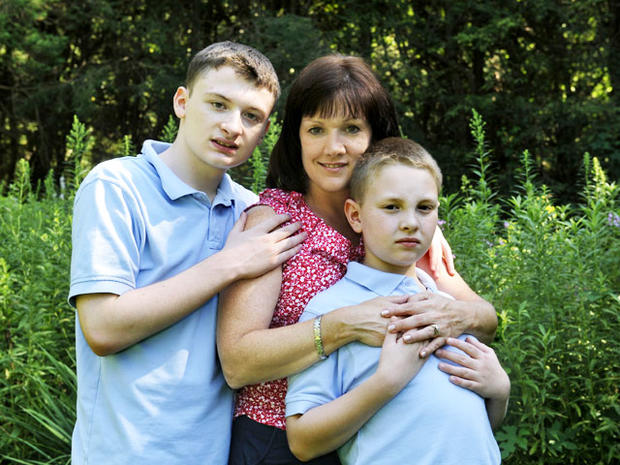Autism risk for siblings unexpectedly high: Study
(CBS/AP)Parents of a child with autism often ask doctors how likely they are to have another child with the developmental disorder. A new study suggests that the risk is a lot higher than previously thought.
A new study suggests almost one in five children with an autistic older sibling will also develop the disorder.
Pictures: Autism: 24 signs your child is at risk
"We were all a bit surprised and taken aback about how high it is," study author Dr. Sally Ozonoff, a professor of psychiatry and behavioral sciences at the University of California at Davis, said of the risk.
For the study - published in the August 15 issue of Pediatrics - researchers followed 664 infants who had at least one older brother or sister with autism. Overall, 132 of the siblings - about 19 percent- ended up with an autism diagnosis by their third birthdays. Previous studies reported the chances between 3 percent and 14 percent. Infants in the study were enrolled before they showed any signs of autism, such as poor eye contact and little social interaction.
Infants who had at least two older siblings with autism showed the highest rates - 32 percent of them also developed autism. Among boys with autistic siblings - 26 percent developed autism versus 9 percent of girls.
Ozonoff, however, noted that 80 percent of siblings in the study did not develop autism, and that the prevalence rate was an average - it may be different for each family depending on other risk factors.
Autism's exact cause is unknown, but experts believe genetic and environmental influences are involved. Ozonoff noted that siblings often are exposed to similar outside influences, which could partly explain the study's results.
The study "has critical implications for families who are deciding whether they'll have another child," said Dr. Catherine Lord, director of the Institute for Brain Development at New York-Presbyterian/Weill Cornell Medical Center. She was not involved in the study.
Kathleen Lanese of Kings Park, N.Y., says having one son with autism didn't make her think twice about trying to have another child.
"We wanted another child and we were going to take whoever we got," said Lanese, who was not involved in the study. Her younger son was diagnosed with autism at 16 months, earlier than her oldest.
Ozonoff said the study should prompt families and their children's doctors to be vigilant with infants whose older siblings have autism. Experts say early diagnosis is important because behavioral treatment has the best chance of working if started as early as possible.
Ozonoff said of children with autistic siblings, "Pediatricians need to listen and make a very focused plan for how to monitor those things, rather than taking a wait-and-see attitude."
About 730,000 American children and adolescents under age 21 have autism. Boys are four to five times more likely to have the disorder, which cause symptoms including avoiding eye contact, obsessive interests, delayed language skills, and trouble understanding and reacting to feelings.
The CDC has more on autism.
